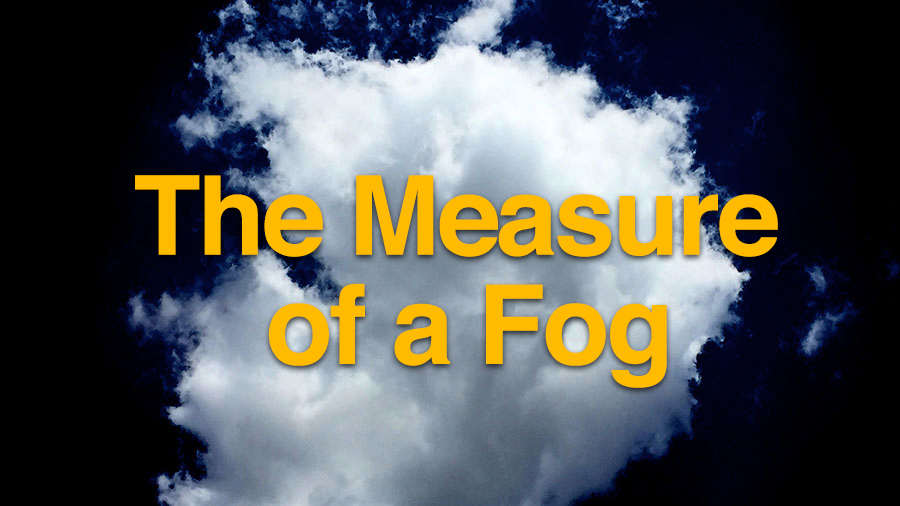The Measure of a Fog: Distance
IF ANYONE WAS LOOKING for clarity from the recent United Nations climate talks in Paris, they will have been sorely disappointed. To some people the outcome suggested that human civilization was finally taking some measured steps to readjust the global thermostat. For others, the world remains tethered to a business-as-usual inertia.
And for some climate scientists, the situation is looking increasingly dire.

In this multi-part series, filmmaker Ian Cheney examines the scale of climate change, in all its many dimensions. Click the play button in the video above to view the short documentary.
Should it really be this hard? If puffing gigatons of carbon dioxide into the atmosphere is warming the planet — and the science is clear that it is — then we ought to just stop the puffing and the problem will be fixed, right? If only it were that easy. The climate problem and its potential solutions are, in a word, big. They are big politically, scientifically, technologically, and temporally, and they are enormous psychologically — even emotionally.
The very concept of “climate” challenges the human mind. Its epochal timescales are difficult to fathom, its inner mechanics, rhythms and contours — they’re sometimes hard to discern, and even scientists are still trying to understand it all. Meanwhile, the changes we’re making to this immense, complex machinery — changes arising from a colorless, odorless gas tied to positive-sounding things like progress and growth and prosperity — it can all seem placeless and everywhere at the same time, both invisible and plain as day.
“You almost couldn’t design a worse fit for our underlying psychology,” Anthony Leiserowitz, the director of the Yale Center for Climate Communication told me.
In figurative terms, I’ve come to think of the climate change problem as a kind of fog — a fog of carbon, if you will, gathering silently in the atmosphere and the oceans, and a fog of questions swirling through our imaginations. That fog envelops the planet and permeates land, sea, and sky. It stretches deep into the past and far into the future. And it affects billions of people and millions of other species — 8.7 million species to be exact — most of which we will never meet or know or really fully understand.
How you take the measure of such a thing? How do you make a picture of it? What’s the metric for understanding it? For solving it?
We are, without question, facing political, scientific, technological, and ethical challenges that lack precedent. But I also believe these same challenges offer us the opportunity to gain new perspectives on what “progress” really means, and new insights into what we’re capable of accomplishing as stewards of the planet.
With this documentary series for Undark, to be published in short installments over the coming months, I aim to explore the scale of climate change from a variety of perspectives — from the scientific and technical to the emotional and political. I don’t pretend to offer answers or specific solutions. I only seek to shine a light into the fog, to look for shapes and patterns, and ultimately to explore the many reasons why this problem is so difficult for humanity to even fathom.

